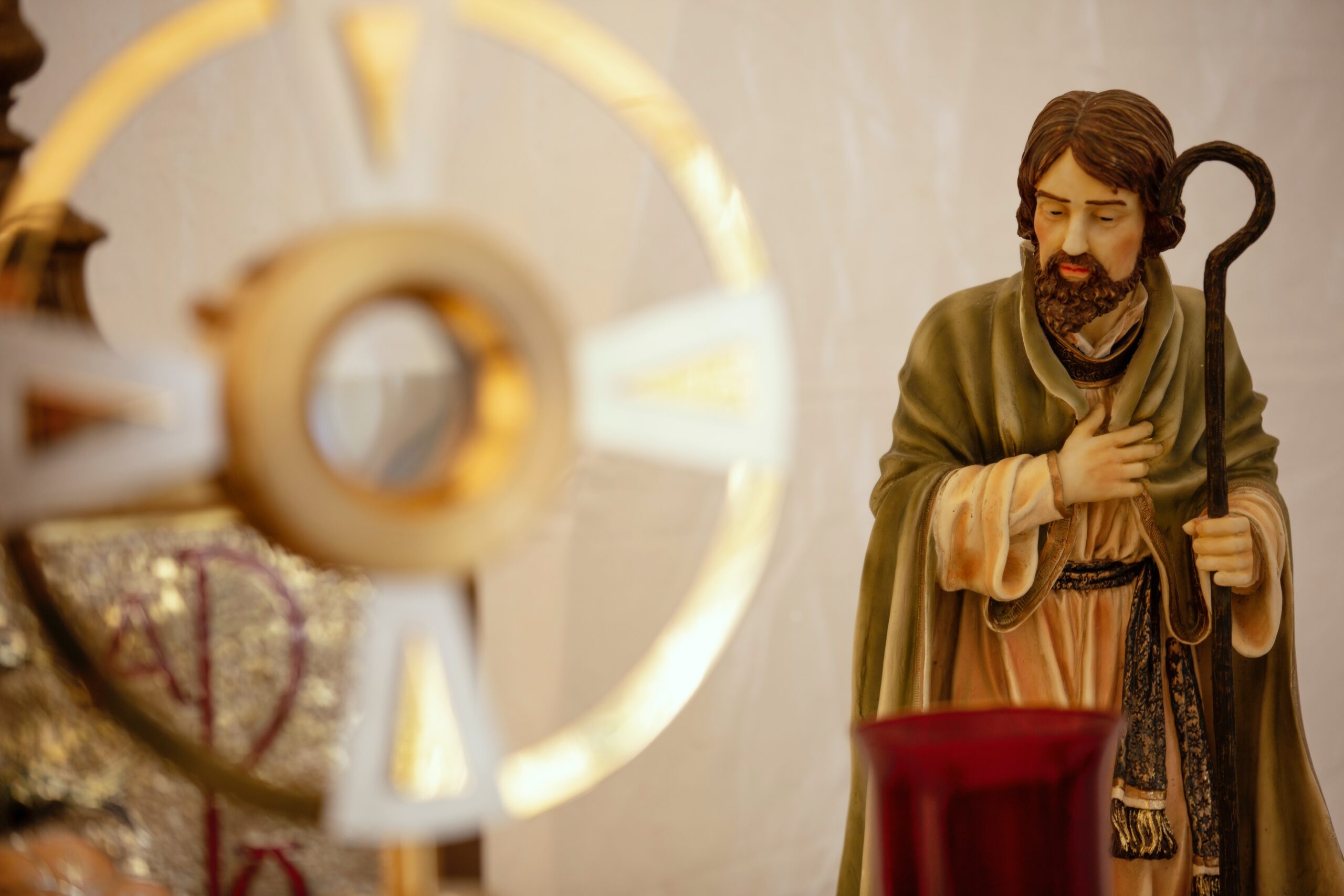There are two different Christmas storylines in the Bible. The first one is Joseph’s perspective on the birth of Jesus Christ in Matthew. The other story is Mary's perspective in the Gospel of Luke.
Today, I'll talk about Joseph’s story based on his statement in Matthew. The story begins in verse 18 “Joseph was engaged to Mary.” For Jews, an engagement usually lasts about a year, and once they're engaged, they're considered as a husband and wife. However, Joseph discovered that Mary was four months pregnant before they actually got married, and it was only a matter of time before everyone found out about her pregnancy.
At that time, Joseph had three options he could choose from.
- He could marry her and bring her to his hometown, Bethlehem, as his wife.
- He could issue her a bill of divorce. Divorce required two or three witnesses, which might include her parents, and it was the only way to finalize the process with an official document.
- He might bring her to a public punishment. In Jewish tradition, the public punishment for a woman who broke her engagement vow was stoning.
Joseph, as a righteous and honest man, couldn't bring himself to marry her because he knew that his parents would not accept Mary as their daughter-in-law upon discovering her pregnancy outside of their engagement vow. He also couldn't bring her to public punishment because of his gentle and kind nature. Therefore, he decided to take the second option, initiating a private divorce process by giving her a bill of divorce.
However, as Matthew 1:20 tells us, after Joseph had a dream of an angel of God and accepted his advice, the angel’s advice was to take Mary as his wife. So, he tried to convince his parents to accept Mary as his wife. But his parents would have disapproved his decision because, in their culture, it was unacceptable to have a bride who became pregnant outside of marriage relationship.
Engagement and marriage rules in Jewish Culture
As you know, in Bible times, the parents of the bride and groom arranged the marriage and entered into a contract. Many times, the bride might not even know who the groom was until they met at the wedding ceremony. It seemed like family business between two families including to pay a dowry. So the divorce process of Joseph was not his own private business but should involve a member of family because it was required repayment of the dowry.
In Jewish culture and society, strict rules applied to engagement vows and marriage ceremonies. Because it is not just a unity of individuals, but a unity of the whole family together. That's why when Joseph was thinking about either ending the engagement or moving forward to live with Mary as his wife, he had to talk it over with his parents before making any decision.
The Reason Why No Room in Bethlehem
Joseph probably lived in Bethlehem where his parents were. His family, from the tribe of Judah, likely owned property in that area. So, when the Roman Emperor ordered a census for taxation, Joseph had to go with Mary to his father's place in Bethlehem, his hometown.
When they got to Bethlehem, Joseph knew that Mary needed a place to give birth. He searched the whole town for a room but couldn't find any. Finally, he found a stable where animals slept. In Bethlehem, there wasn't any room for Mary and Joseph to stay the night, even though it was an emergency.
Why No Room
Today, my question is this! Why could Joseph not find a room to give birth to a baby in the town of Bethlehem? Bethlehem was Joseph’s hometown, and in there, he had his father’s house, his siblings’ houses, and many relatives who lived in that area. He had uncles, aunts, and probably hundreds of cousins living there.
Why he could not have a single room for giving birth to a child? I pondered the question this whole week, and finally, I found a clue why he did not have a room. It was in Luke 2:5 “He went there to register with Mary, who was pledged to be married to him and was expecting a child.” Think about it—Joseph got engaged to Mary about a year ago. In general, He was supposed to marry her because, traditionally in Jewish weddings, after a year-long engagement, the wedding celebration would take place at the bride's house, and then the bride moved into the groom's house and the consummation of the marriage took place there.
When Joseph got engaged to Mary before she conceived through the Holy Spirit, now it's time for the child to be born. But their legal status was still engaged, not married yet. His marital status with Mary indicated that things didn't go smoothly from engagement to marriage. So, legally, he couldn't marry Mary yet. The most possible reason might be that Joseph had a disagreement with his parents about the wedding and didn't get their permission yet.
Joseph Final Decision
In verse 24, Joseph took Mary to his home without legal and proper ceremony. It seemed like Joseph’s arbitrary action without the consent of his parents. If his parents were involved and were to take her as their legal daughter in law, Joseph was supposed to bring Mary to his father’s house in Bethlehem and let his family and relatives know he was married man.
The Bible account testify that Joseph did not go up his father’s house but stayed in Nazareth, the hometown of Mary. The reason was that Joseph decided to abandon his hometown, his parents, and his native land for the birth of Christ. So, when Mary went to Joseph's hometown and had the baby, she didn't have any support from Joseph's family. Even though They lived in a small town in Bethlehem with a population around 2,000 to 3,000, Joseph was completely forgotten by his family because of his decision for Christ.
Christmas behind story of Joseph help us better understand Matthew 19:29, Matthew 19:29 says, “And everyone who has left houses or brothers or sisters or father or mother or wife or children or fields for my sake will receive a hundred times as much and will inherit eternal life.”
It was what Joseph did so that Christ came to the earth as a baby to give us eternal life and save the world. Joseph’s decision has brought everlasting hope for us and also for our children’ and grandchildren’s and great grandchildren’s’ generations.
Conclusion
Jesus Christ is our hope but before we talk about Christian hope, let's break down the differences between dream and hope because people tend to use it interchangeably.
A dream is like a cherished goal or ambition, usually tied to someone's vision for the future as they work toward their goals. Hope, on the flip side, is anticipation and desire for something to happen in the future, even when life is uncertain or challenging.
Dreams and hope might seem similar, but the most difference is the certainty of their possibility. If someone works hard toward a dream, there's a chance it can come true. There is some possibility. But Christian hope carries the absolute confidence that it will undoubtedly become reality. That's the key difference between a dream and Christian hope.
So, Hebrews 11:1 says “Now faith is being sure of what we hope for and certain of what we do not see.”
Embracing unshakable Christian hope in your heart today.
@ 12.10.23 Pastor Cloud Poy
@ Photo on Unsplash의Josh Applegate

